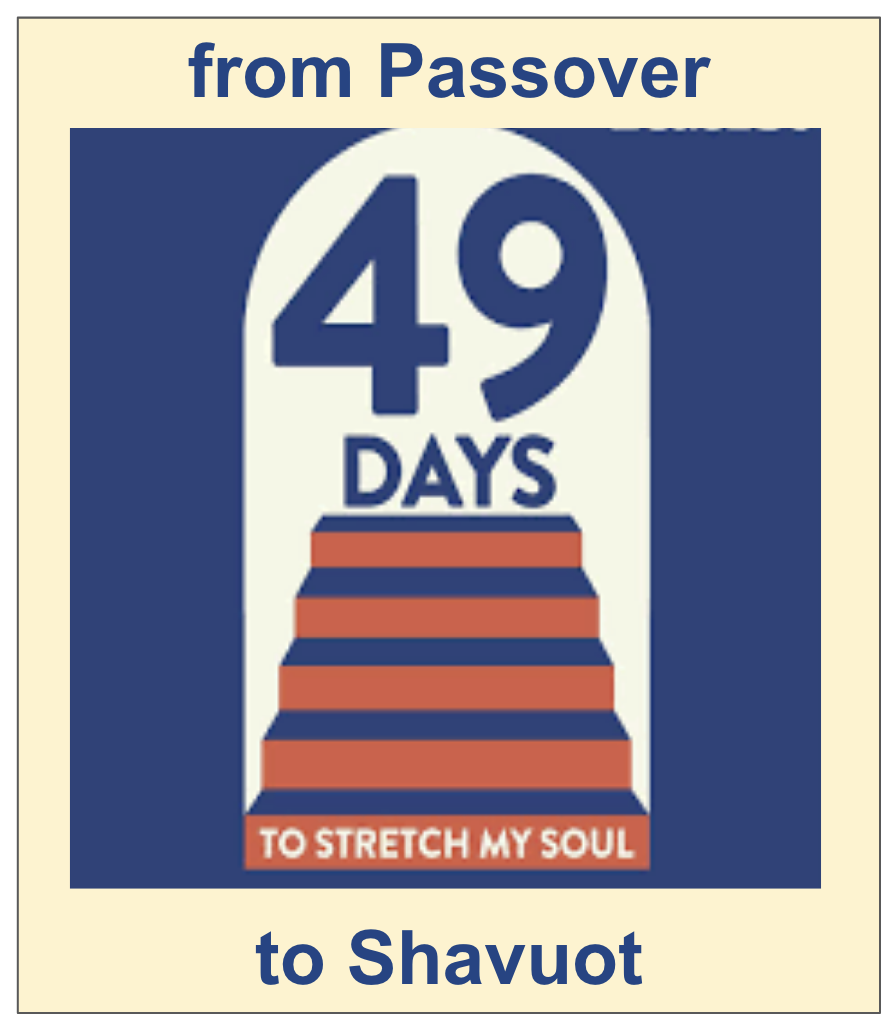| The first three weeks of our Omer journey from Passover (liberation) to Shavuot (revelation) were to calibrate our qualities of love (hesed), strength (gevurah) and balance (tiferet). From our to love and be loved, we evoked soft-hearted courage to face the future, boundaries flexible enough to avoid excess rigidity but strong enough to protect us from abuse, and balanced beauty and spirituality that lift us without fetishizing. This fourth Omer week focuses on resilience (netzah), which is about more than forward progress like the Energizer Bunny. |
By Rabbi David Evan Markus
This seven-week series of posts about the Omer journey maps to our "Soul Stretch" mini-series on Tuesdays 8:00pm - 8:30pm through Shavuot. Each week's post summaries themes covered in the prior Tuesday's session.
The first three weeks of Omer focused on love (hesed), strength (gevurah) and balance (tiferet) as character traits and spiritual goals. This fourth week of counting Omer (May 14 - May 20, 2024), we emphasize resilience (netzah).
Often we understand resilience as our capacity to persevere and overcome. Resilience is a Jewish superpower, but resilience isn't just the Energizer Bunny that keeps going and going. After all, sometimes we don't just keep going and going. Everyone needs times in life to not keep going and going (e.g. Shabbat) And sometimes we can't keep going and going: life sometimes stops us.
Like other traits of the Omer period, resilience (netzah) has several dimensions. One is our capacity to rebound. Resilience doesn't mean always winning – always being in balance, always being strong, always feeling the love. Rather, resilience is our capacity to reframe and redirect: it's our capacity to heal after the break, to get back up after a tumble.
Resilience also connotes confidence. It's a sense of self that projects capacity, ability, love and strength both within ourselves and out into the world. Without resilience in the form of confidence, we can't balance capacity and action.
Also like other traits of the Omer period, we seek to balance our resilience healthfully. If our resilient capacity to rebound is too strong, then we may miss the lessons that downturns can bring us. If so, it can be a sign that we're avoidant, which paradoxically isn't strong at all. On the other hand, without resilience we stay down: we don't bounce back. That's depression and diminishment. Too much confidence can be foolish, even arrogant. But without confidence, we end up small and disempowered: we forget how loving and strong we are.
Consider how your own character tends to align with resilience – our ability to rebound and project healthy confidence. Dedicate some time, energy and heart to them this week in particular.
Next week will be about splendor (hod).
This seven-week series of posts about the Omer journey maps to our "Soul Stretch" mini-series on Tuesdays 8:00pm - 8:30pm through Shavuot. Each week's post summaries themes covered in the prior Tuesday's session.
The first three weeks of Omer focused on love (hesed), strength (gevurah) and balance (tiferet) as character traits and spiritual goals. This fourth week of counting Omer (May 14 - May 20, 2024), we emphasize resilience (netzah).
Often we understand resilience as our capacity to persevere and overcome. Resilience is a Jewish superpower, but resilience isn't just the Energizer Bunny that keeps going and going. After all, sometimes we don't just keep going and going. Everyone needs times in life to not keep going and going (e.g. Shabbat) And sometimes we can't keep going and going: life sometimes stops us.
Like other traits of the Omer period, resilience (netzah) has several dimensions. One is our capacity to rebound. Resilience doesn't mean always winning – always being in balance, always being strong, always feeling the love. Rather, resilience is our capacity to reframe and redirect: it's our capacity to heal after the break, to get back up after a tumble.
Resilience also connotes confidence. It's a sense of self that projects capacity, ability, love and strength both within ourselves and out into the world. Without resilience in the form of confidence, we can't balance capacity and action.
Also like other traits of the Omer period, we seek to balance our resilience healthfully. If our resilient capacity to rebound is too strong, then we may miss the lessons that downturns can bring us. If so, it can be a sign that we're avoidant, which paradoxically isn't strong at all. On the other hand, without resilience we stay down: we don't bounce back. That's depression and diminishment. Too much confidence can be foolish, even arrogant. But without confidence, we end up small and disempowered: we forget how loving and strong we are.
Consider how your own character tends to align with resilience – our ability to rebound and project healthy confidence. Dedicate some time, energy and heart to them this week in particular.
Next week will be about splendor (hod).


 RSS Feed
RSS Feed